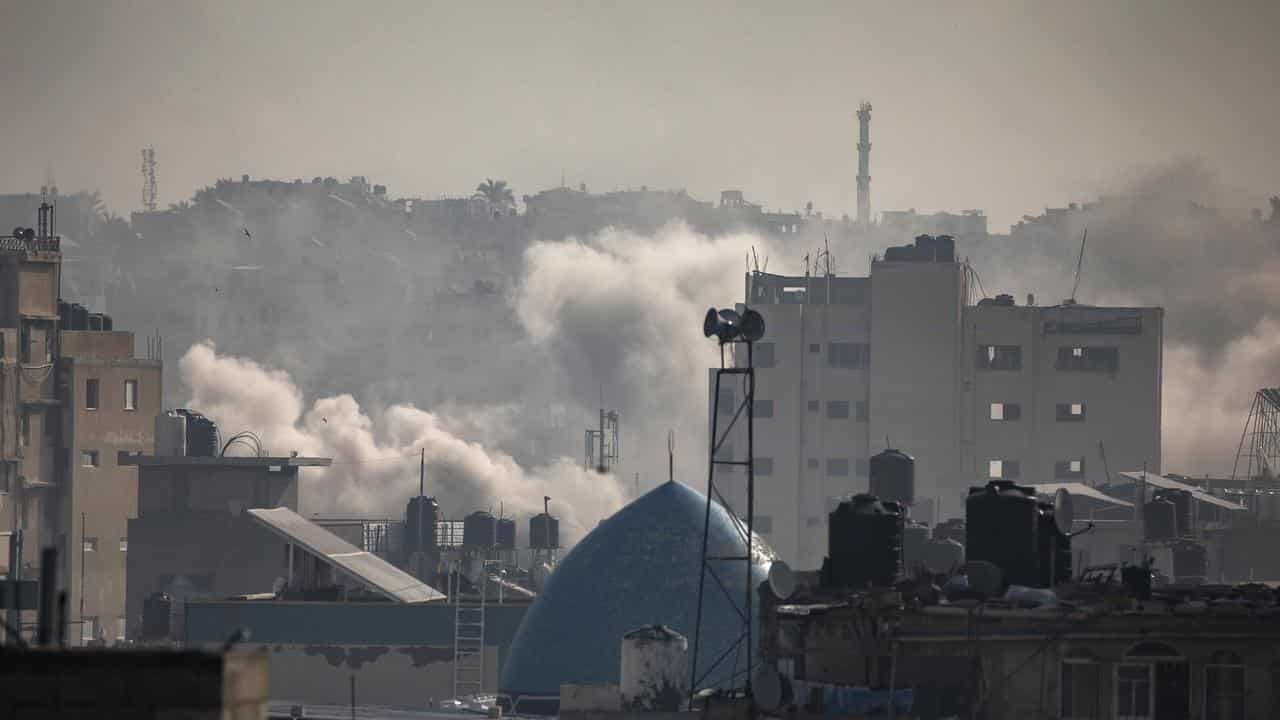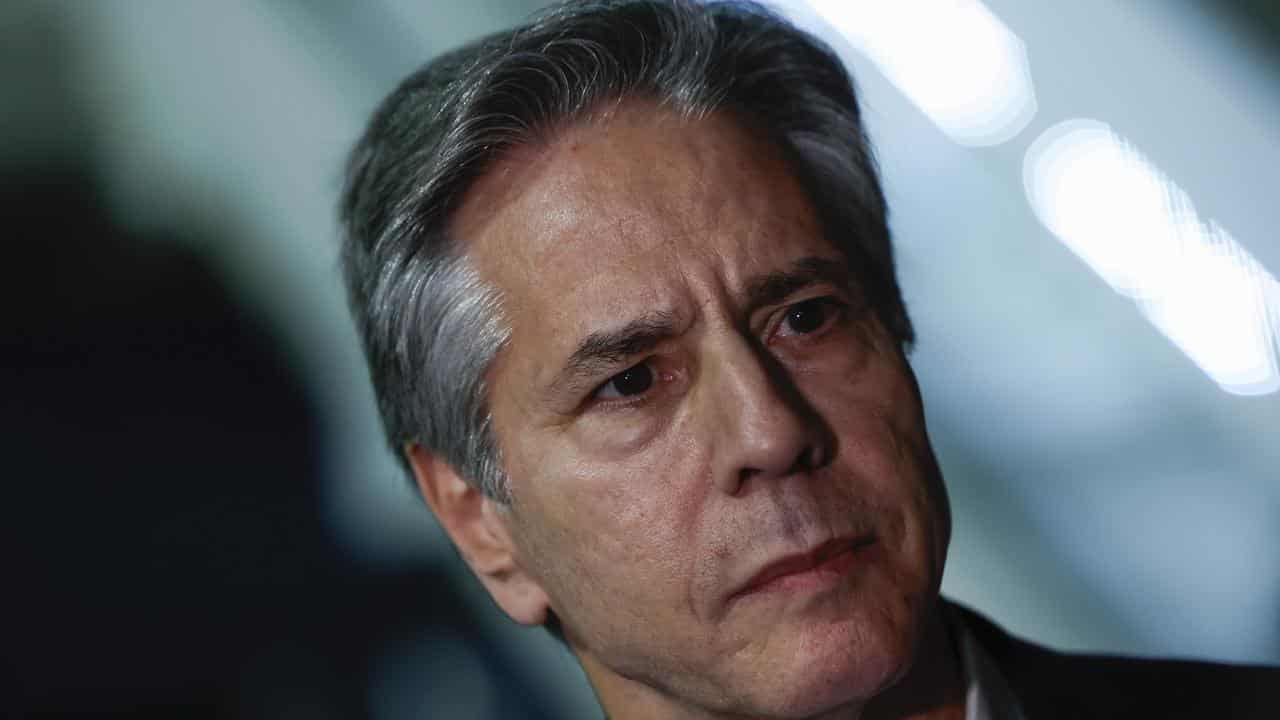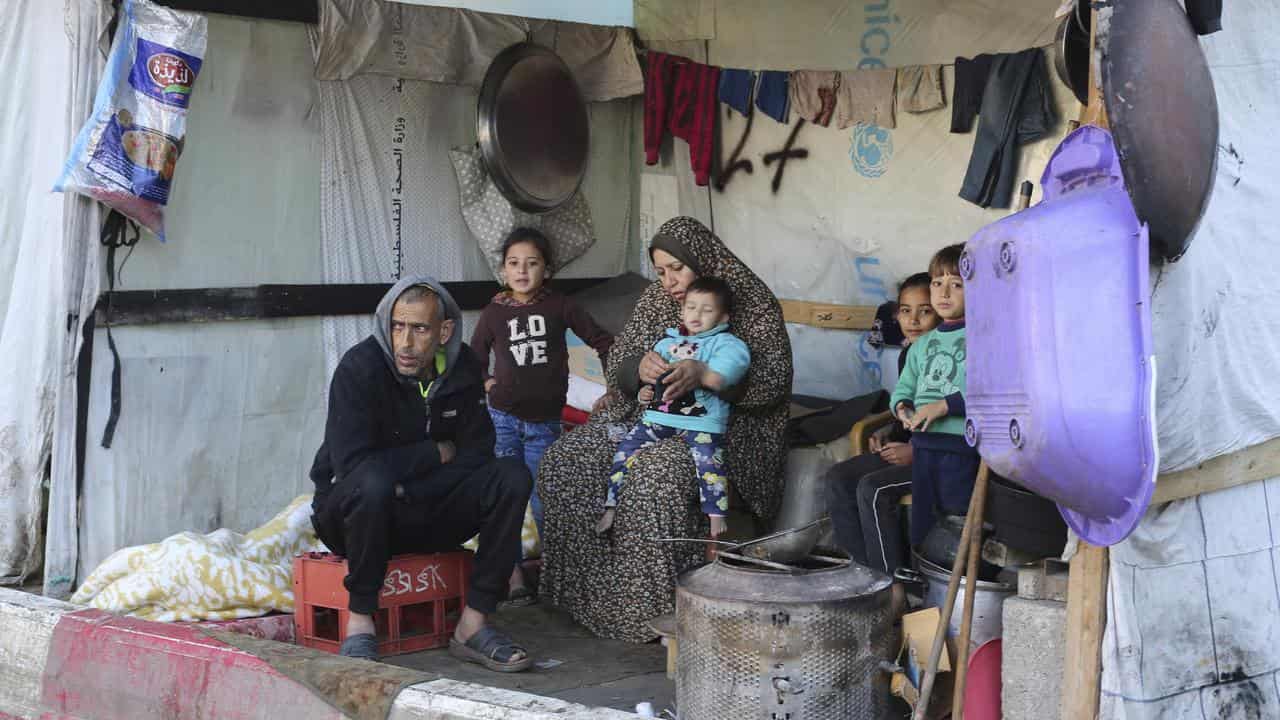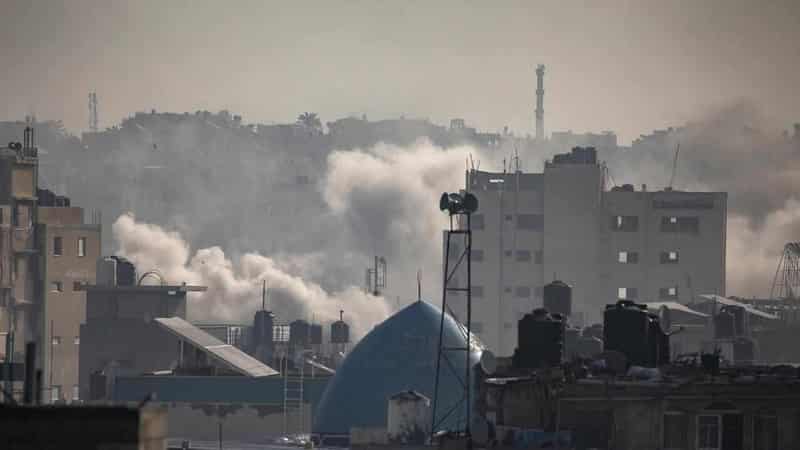
US Secretary of State Antony Blinken, on his continuing mission to rein in the Gaza war, has told Israeli leaders there was still a chance of winning acceptance from their Arab neighbours, if they create a path to a viable Palestinian state.
On his fourth trip in a so far largely fruitless quest to tamp down the violence, Blinken said he would share what he had heard in two days of talks with Jordan, Qatar, the United Arab Emirates and Saudi Arabia.
His visit will include a meeting with the Israeli war cabinet formed in the wake of the October 7 Hamas attacks, that Israel says killed 1,200 people.
The Israeli offensive in retailiation has killed more than 23,000 Palestinians, destroyed much of Gaza and displaced most of the population of 2.3 million, creating a dramatic and worsening humanitarian crisis.
Blinken had already said he would press Israeli Prime Minister Benjamin Netanyahu's government on the "absolute imperative" to do more to protect Gaza's civilians and allow humanitarian aid to reach them.
US President Joe Biden, said overnight that Washington was quietly pushing Israel to begin withdrawing some of its forces.
The US diplomat's meetings around the region have focused on trying to chart a longer-term approach to the decades-old Israel-Palestinian conflict, as part of a path toward ending the Gaza war.
After his meetings with Arab allies, he said they wanted integration with Israel - a long-term Israeli aim - but only if that included a "practical pathway" to a Palestinian state.

After weeks of US pressure to scale down its assault, Israel says its forces are transitioning from full-blown warfare to a more targeted campaign in the northern half of Gaza, while still maintaining intensive combat in southern areas.
The Palestinian health ministry in Gaza said 57 Palestinians killed by Israeli air strikes and 65 wounded had arrived in the past 24 hours at the already badly overstretched Al Aqsa hospital in the centre of the 45 km long Gaza Strip.
Late on Monday, the medical charity MSF said a shell had broken through the wall of one of its shelters in Khan Younis housing over 100 staff and their families, critically wounding the 5-year-old daughter of an MSF staffer.
The conflict has spread to Lebanon, where the Hezbollah militia has been firing rockets across the Israeli border in support of Hamas.
Both groups are supported by Iran, Israel's sworn enemy.Three members of Hezbollah were killed on Tuesday in a strike on their vehicle in south of Lebanon, two sources familiar with the group's operations told Reuters, after a top Hezbollah commander was killed in the area on Monday.
Hezbollah said it had launched a drone attack against Israeli command headquarters in response to the killings of senior Hezbollah figure Wissam Tawil and of deputy Hamas leader Saleh al-Arouri in Beirut last week. Israel has neither confirmed nor denied responsibility for the attacks.
Blinken flew to Tel Aviv after talks in the United Arab Emirates and Saudi Arabia to try to chart a way out of the bloodiest chapter ever of the decades-long Israel-Palestinian conflict.

Saudi state news agency SPA reported that Crown Prince Mohammed bin Salman had underscored the need to ensure the Palestinian people's legitimate rights.
Jordan's King Abdullah said on Monday that "indiscriminate aggression" and shelling could never bring peace or security.
In remarks at the Kigali Genocide Memorial in Rwanda, he said: "More children have died in Gaza than in all other conflicts around the world this past year. Of those who have survived, many have lost one or both parents, an entire generation of orphans."
Nearly all of Gaza's residents have fled their homes at least once and many remain on the move, often sheltering in makeshift tents or under tarpaulins.









